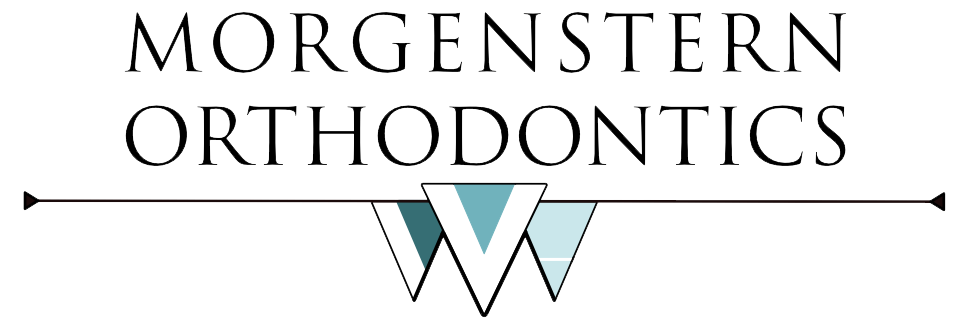HAVE QUESTIONS?
We Have Answers
What if I'm not ready for braces yet?
In many cases, children may not be ready for orthodontic treatment right away. Dr. Morgenstern will decide how often she wants to see you for observation checks so she can monitor baby teeth falling out, permanent teeth growing in, and how much you're growing. Then you'll be able to start treatment at the ideal time.
Does my family dentist need to refer me?
No referrals are required. Your family dentist or pediatric dentist may refer you but many patients call directly to schedule a consult themselves.
What's the best age for an orthodontic consult?
The American Academy of Orthodontists recommends an orthodontic consult at age 7. Although this may seem early, this is a great age to evaluate available spacing and the bite since several permanent teeth have come in. There are sometimes simple things that can be done before braces that can prevent future problems, make treatment easier later on, and improve your future smile.
Am I too old for orthodontic treatment?
No! You’re never too old. In fact, one in every five orthodontic patients is over the age of 21. If you’re dreaming of a more naturally beautiful smile as an adult and are concerned about wearing braces, we have many esthetic options such as clear brackets or clear aligners (Invisalign) to make treatment more discrete.
Why should I choose an orthodontic specialist?
All orthodontists are dentists but not all dentists are orthodontists. Orthodontists undergo 2-3 additional years of training after dental school that focus solely on providing orthodontic treatment. Teeth, and sometimes facial structures, are permanently changed by orthodontic treatment and an orthodontic specialist has the knowledge to ensure appropriate care is provided and excellent results achieved.
What will happen at the consult appointment?
Remember the consult appointment is 100% free-of-charge! You’ll get to tour the office, learn more about orthodontic treatment in general, and meet Dr. Morgenstern. You’ll have some photographs taken of your teeth along with an x-ray, if you don’t have a recent one from your dentist. Dr. Morgenstern will look at your teeth and bite and discuss her findings and your treatment options. You’ll get an estimate of how long treatment will take, the cost for the treatment you need, and we’ll review payment plans that are available.
How long does treatment take?
Each patient’s teeth and bite are unique and treatment time varies based on a variety of factors. In general, treatment times range 12-30 months with an “average” of 20 months.
Will I need to have teeth extracted for braces?
We only remove teeth if absolutely necessary in order to achieve the best orthodontic result and provide you with the best smile possible. If you do need teeth removed, after treatment all spaces will be closed and you won’t be able to tell where teeth were taken from. Dr. Morgenstern will talk to you more about extractions if they are necessary for your case.
What is early treatment?
Early treatment is not always necessary and is treatment for younger children, usually 7-9 years old. This type of treatment is done when there are still some baby teeth left and it addresses problems that can become more severe over time. It can also be used to help with self-image in the cases of children being teased at school due to the appearance of their teeth.
How much will orthodontic treatment cost? What payment options are available?
After we have a better idea of the type of treatment you need from your initial consultation, we will provide you the exact cost at your consult visit. We offer interest-free, in-office financing and will also review your insurance policy so you can maximize your benefits. For more information, please check out our Insurance and Payment Information.
Will my treatment hurt?
In general, braces do not hurt. Just like after you exercise your muscles, your teeth will also feel some soreness after your appointments. Ibuprofen or Tylenol can help with this feeling.
What foods will I be able to eat after treatment starts?
As your treatment starts, we will review and give you a list of foods to avoid. The list includes really sticky or crunchy foods like hard candy, taffy, caramel, and ice. These foods are more likely to break a bracket so it isn’t attached to your tooth anymore. If a bracket is broken, then it isn’t moving your tooth and your treatment can take longer.
How do I brush and floss with braces?
It’s very important to brush after each meal and floss once a day. Braces catch a lot more food than your normal teeth and it’s important to keep them clean so you don’t get white scars on your teeth, cavities, or gingivitis while you have braces. We will review how to brush and floss with braces when you start treatment.
Do I still need to see my family or pediatric dentist while in braces?
YES! Orthodontic visits do not replace your routine check-ups and cleanings with your family or pediatric dentist. These cleanings and check-ups are very important to keep your teeth healthy during treatment.
What's a repair or comfort visit?
If a part of your braces break such as a bracket comes off the tooth or a wire slides out and starts poking your cheek, you can call our office the next business day to schedule a repair visit. This is usually not an emergency but it is important to fix promptly so that it doesn’t slow down your treatment.
Can I play sports and instruments with braces?
Absolutely, we want you to continue all of your sports and other activities with your braces. We do recommend mouth guards for all sports. The ones we like are SISU or Shock Doctor.
For additional information, please contact our office. We'd be happy to help answer your questions!
